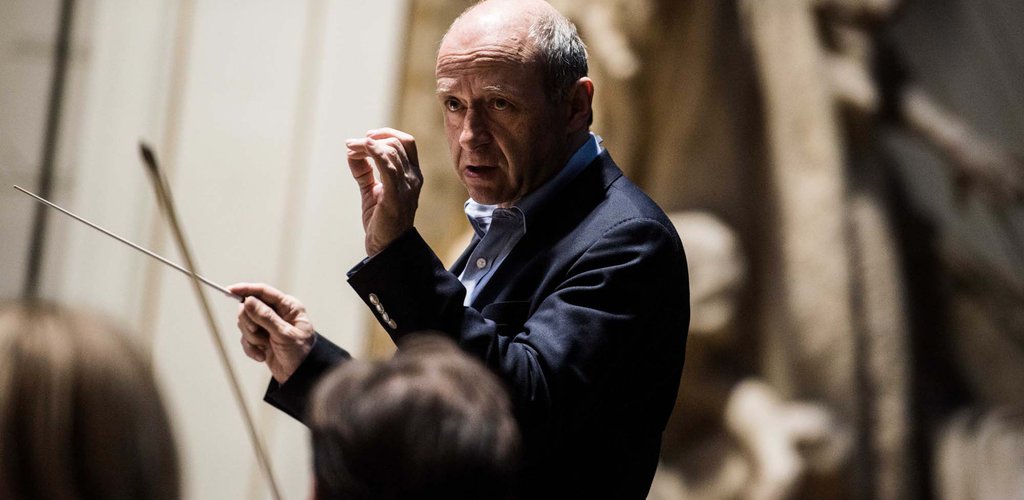Seated at a desk with a tablet at the front of the Festival Hall stage, Fischer talked about folk music and the explorations of it by Bartók and Kodály, bringing us recorded examples from yesteryear: village singers from 1917, the whole enterprise begun by Bartók’s fascination of the singing of Lidi Dósa. The immersion continued with a selection of folk-songs sung by the excellent Márta Sebastyén (whose mother was a student of Kodály’s) accompanied by members of the orchestra: violinist István Kádár, András Szabó on folk viola – he is actually a horn player with the orchestra – and Zsolt Fejérvári on folk double-bass. The viola seemed to be played at an angle of 90 degrees from the usual position. It was, in fact, like stepping back in time. Taking the folksongs Bartók uses in his Hungarian Peasant Songs was inspired, as we experienced them with fresh ears in Bartók’s own versions in his Sz100, which divides them into two movements: a set of variations and a complementary “Old Dance Tunes”.
The sound of the Budapest Festival Orchestra in the Peasant Songs was large and full. Antiphonal violins and seven double-basses arranged in a line at the back meant there was a real depth to the sound. Special mention, too, for the poignant oboe solos of Márta Berger. In the higher dynamics, the strings seemed to take on a rather bright edge. The return of the folk musicians acted as a reminder of this music’s origins: enthusiastic bass slapping was particularly memorable and enjoyable.
The opera Duke Bluebeard’s Castle began with an unscheduled interruption from the audience; sadly, I didn’t catch what was said but it seemed to be in the nature of a request. Fischer himself opened proceedings, cueing in the lower strings by reaching backwards with his baton. This music fairly obviously runs in the musicians’ blood, as the superb unanimity of the woodwind gestures early on revealed; as it does very much in the blood of Ildikó Komlósi, who has sung the role of Judith over 150 times. Komlósi lived every phrase, her pitched scream absolutely blood-curdling. Heard against Fischer’s hyper-responsive orchestra, the result was mesmeric at every turn.
Komlósi lived her part, her reflections on what she left behind to follow Bluebeard to his castle unforgettable. By comparison bass Krisztián Cser, a member of the Hungarian State Opera since 2008, seemed rather more detached. He has a lovely, true bass voice that just had enough power for the climactic moments. Yet against not only Komlósi but the complete concentration of the Budapest Festival Orchestra, his contribution seemed rather wan. Fischer’s highly colourful realisation of Bartók’s score, from the high dissonance of the seventh door to the superb brass articulation in The Armoury to the ferocious fifth door, spoke of complete familiarity with the score. The orchestra followed him impeccably throughout.
There was no encore, just a massively satiated feeling of having heard superb music, superbly played and thought-provokingly programmed.
Colin Clarke
